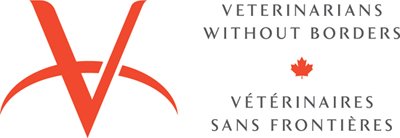
Thursday May 28
After meeting with Dr. Louis Aziku, the veterinarian in charge of livestock in the local United Nations Development Programme Millenium Village we went there together. The Millenium Village seeks to improve many aspects of society in areas identified to have the greatest need. In Ruhira, the UNDP's involvement supported schools, health centres, road infrastructure, water catching, and building infrastructure for animal management.
Although I'm sure the people in this area's situation has improved substantially, I question how sustainable such high inputs by the UNDP are? Dr. Aziku mentioned that family planning is an important part of health centres. However, with already dense subsistence farms blanketing the landscape and disproportionately large numbers of children, overpopulation strikes me as a concern.
With Dr. Aziku, we visited a few well built goat demonstration pens, built by UNDP and owned by local farmers. Dr. Aziku filled us in on how the farmers work their farms and the different forages fed to goats. We interviewed some farmers to get an idea of how much labour and time is required to feed his goats. One farmer reported that he spends 1.5 hours per day feeding his goats. (By bringing feed to goats in the pens, there are exposed to fewer worm eggs and other diseases)
Friday May 29
A week before, we were eating lunch in town and met Godwin, a principal of a school who invited us to visit his school. As we chatted with him we discovered that he has his own orphan children, in addition to the hundreds he supports with his work.
On May 29 am we went for the Friday assembly which involved outdoor prayer songs via microphone, synthesizer and musically talented teachers. After some time of song and prayer, Godwin introduced us and we described how we are Canadian Vet Doctors and visiting Uganda to help orphan children by helping goats in the hands of those who care for orphans. Godwin asked who of the children is an orphan and a dozen or so hands went up. Pam and Rocky mentioned that I play guitar, and they suggested I play a song... so I played the Hornby Song after describing where Hornby Island is. The children and teachers sang along (unlike North Americans tendencies) and seemed to enjoy it. Towards the end, Godwin mentioned that goat's milk is very healthy and invited us back to teach some nutriation and other subjects.
In Uganda, goat's milk is not very common and somewhat taboo to drink. There is some work to be done in order to create demand for goat's milk among the local people and in the cities. Such education is one of our next challenges. Today (Sat.) we found out that the delivery of our vaccine is slightly delayed...



